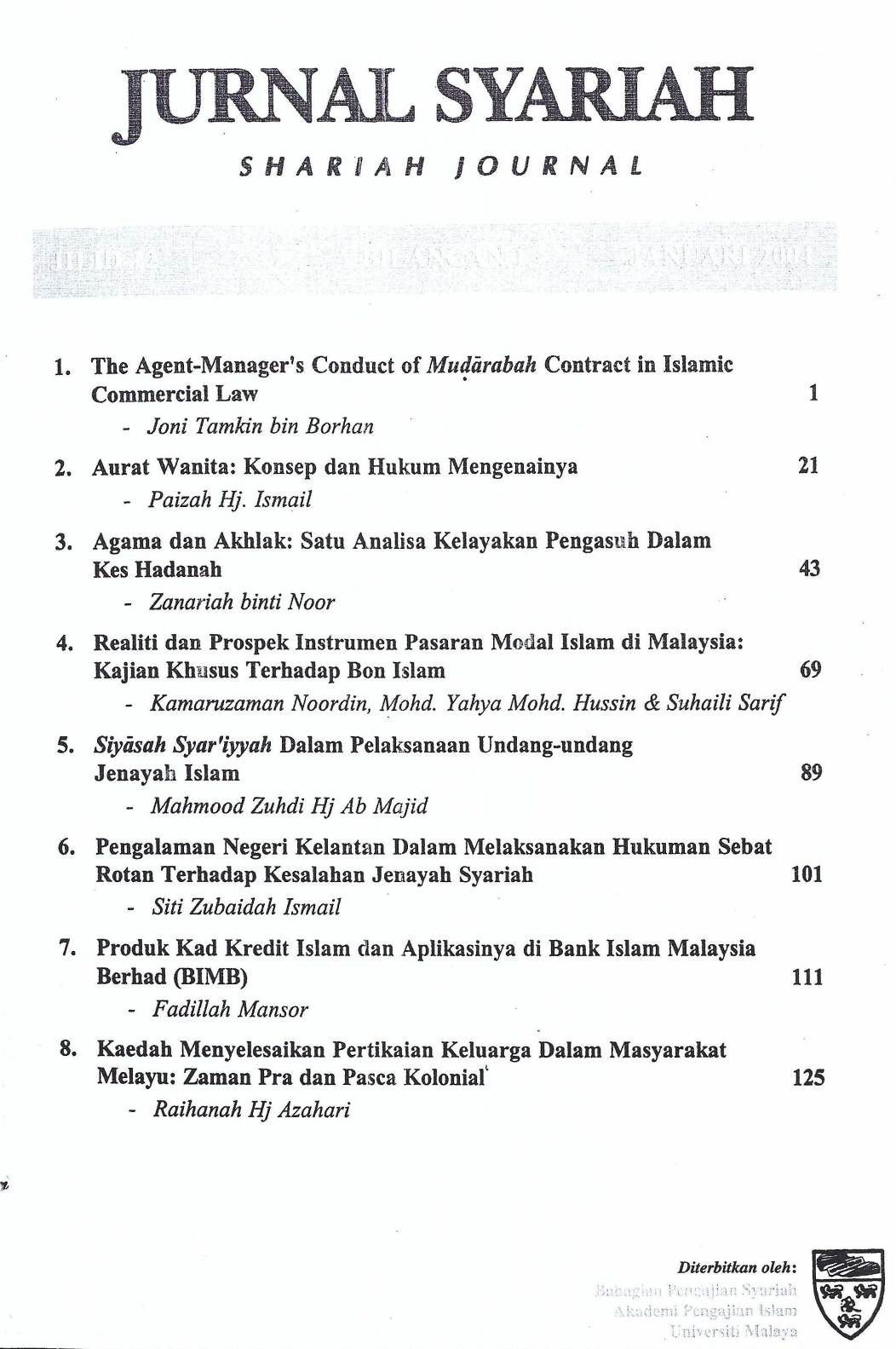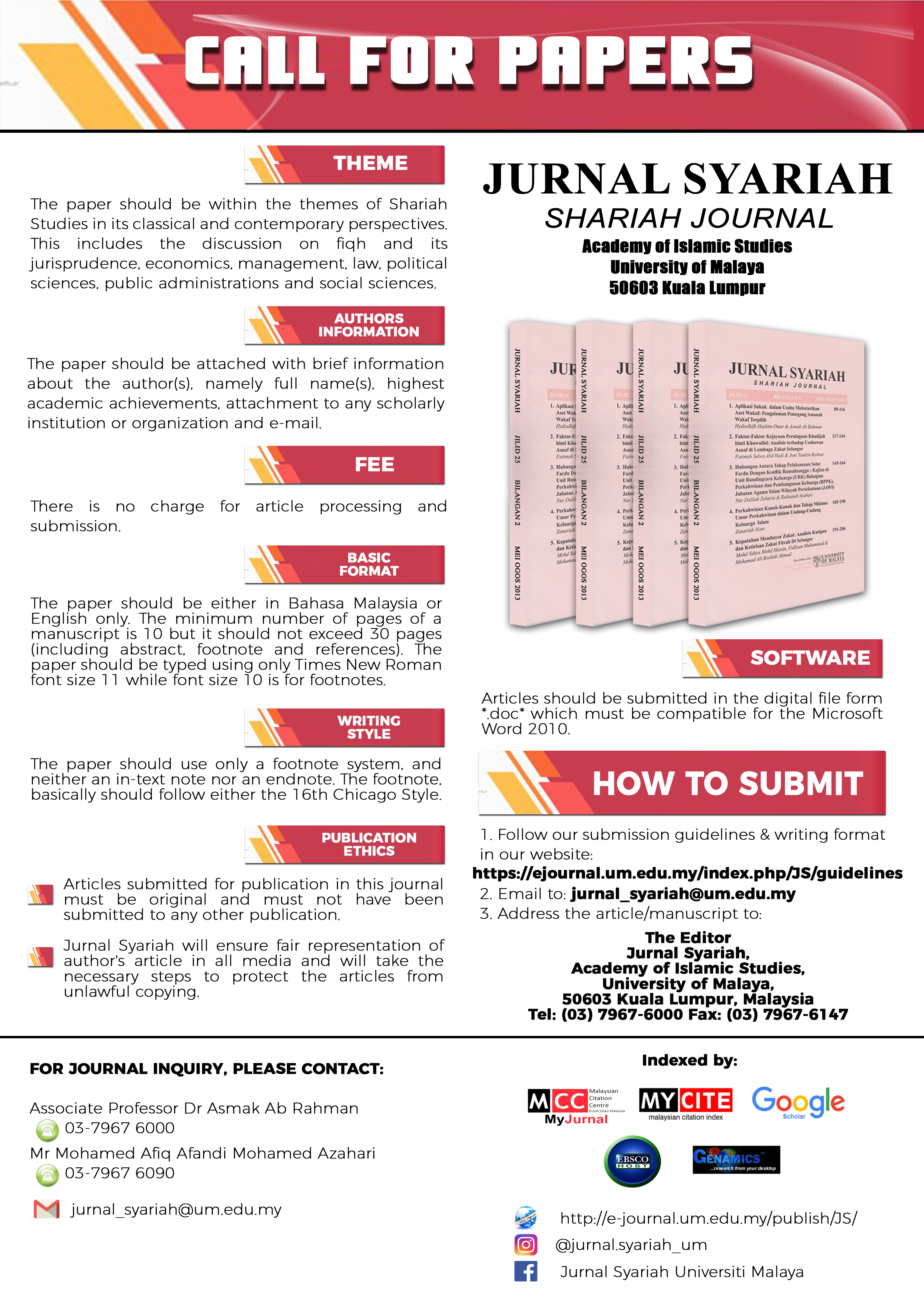KAEDAH MENYELESAIKAN PERTIKAIAN KELUARGA DALAM MASYARAKAT MELAYU: ZAMAN PRA DAN PASCA KOLONIAL
Abstract
Informal dispute resolution, mainly mediation and conciliation, has long been
practised by the Malay Muslim communities as part and parcel of their
cultural and religious traditions. In the pre-colonial period the family played
the main role in conflict resolution, usually assisted by elderly members of the
extended family circle. As in many traditional societies, the family was
recognized as the main instrument of social control throughout the
individual's life span. Should any individual be involved in a conflict,
especially in an intra-family dispute, it was responsibility of the family elders
to handle the matter. If the conflict cannot be resolved or become protracted,
village elders or appointed leaders are often called on to assist the family.
The former are consulted and decisions respected due to their wisdom,
standing in society and experience as mediators. However, socio-economic
changes occurring over the last several decades have transformed the nature
and role of family relationships, limiting the existence and influence of the
the extended family system. Gradually, traditional mediation and conciliation
were replaced by modern adjudication as the resort almost all forms of
interpersonal conflict in present-day Malay Muslim society.
Downloads
Downloads
Published
How to Cite
Issue
Section
License

This work is licensed under a Creative Commons Attribution-NonCommercial 4.0 International License.
COPYRIGHT: All rights reserved. Not allowed to be reproduced any part of articles and contents of this journal in any form or by any way, whether electronic, mechanical, photocopying, recording or otherwise without permission in writing from the Chief Editor, Jurnal Syariah.



















